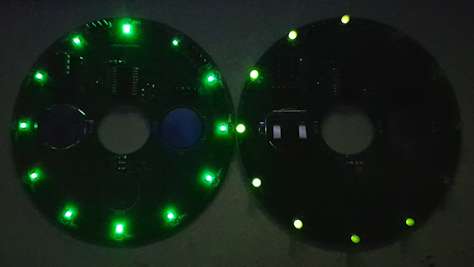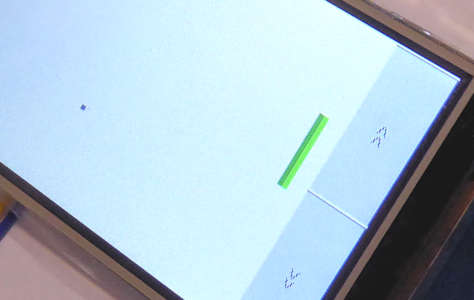When you program simple microcontrollers as if they were fancy computers, which can do crazy computational stuff like multiplication, you are in for some surprises. Here’s one of those surprises, plus a solution.

When you program simple microcontrollers as if they were fancy computers, which can do crazy computational stuff like multiplication, you are in for some surprises. Here’s one of those surprises, plus a solution.

It is not every day that one encounters a question left unanswered by Google, especially when it’s very specific and related to programming. So, to ruin this one for everyone else, here’s my solution to a cute little coding riddle from a classic old game.

Many makers are fond of Nextion displays, because they simplify the process of creating graphical touch interfaces for embedded systems, and are less expensive than other HMI (Human-Machine Interface) screens. They were not designed for games, so I decided I had to write one as a challenge!

Continue reading Programming Pong on a Standalone Nextion Display
Can the PC’s mouse input be used to send binary data from an embedded system to a desktop software? And, more importantly, can this be done without affecting the regular usage of the mouse? As it turns out, within a few limitations, the answer is yes. Here’s how.
I was never a big fan of using Arduino libraries (i.e. libraries written by people other than yourself), but this time it’s gone too far. They simply can’t be trusted. They do more harm than good. These libraries are evil. Do you think I’m exaggerating? Well cover your nose, because we’re about to go where things really stink!
If you have some background in computer programming languages, and you just started working with low-memory MCUs, you may be tempted to do some dynamic allocation in your programs. After all, that’s what smart memory management is all about, right? Well, the truth is that in the vast majority of cases, dynamic allocation in MCUs will be pointless and even detrimental. In this post, I will explain why.
Continue reading Why You Don’t Want To Use Dynamic Allocation On Your MCU
The Serial Monitor of the Arduino IDE is used extensively by most, if not all, Arduino programmers. it is also unbelievably basic, and provides only the simplest of capabilities. On the plus side, that makes it easy to operate, but it also causes some frustrations. Isn’t it time for a better alternative?
While this could be a really awesome title for an Arduino project (hmm…. maybe it will be, one day), this post is actually about spamming software mechanisms, as exposed by an interesting piece of tell-tale spam I got a few days ago. Let’s peek into the murky depths where spammers and spam blockers collide…
No, this is not about their killer driver fiasco from a couple of weeks ago. In a sense, that was a success – at least the driver did what it was supposed to do! How about distributing a demo source code for a new product – probably the very first code a user will try to compile and run – that has obvious bugs which render it useless?
Do you use your Raspberry Pi (or any other single-board computer) as a Linux desktop? How would you like to be able to program graphic applications for it, quickly and easily, using a modern IDE? Forget Python and makeshift “solutions”, it’s time for the real thing!
Continue reading Easy Desktop Programming For Your Tiny Computer